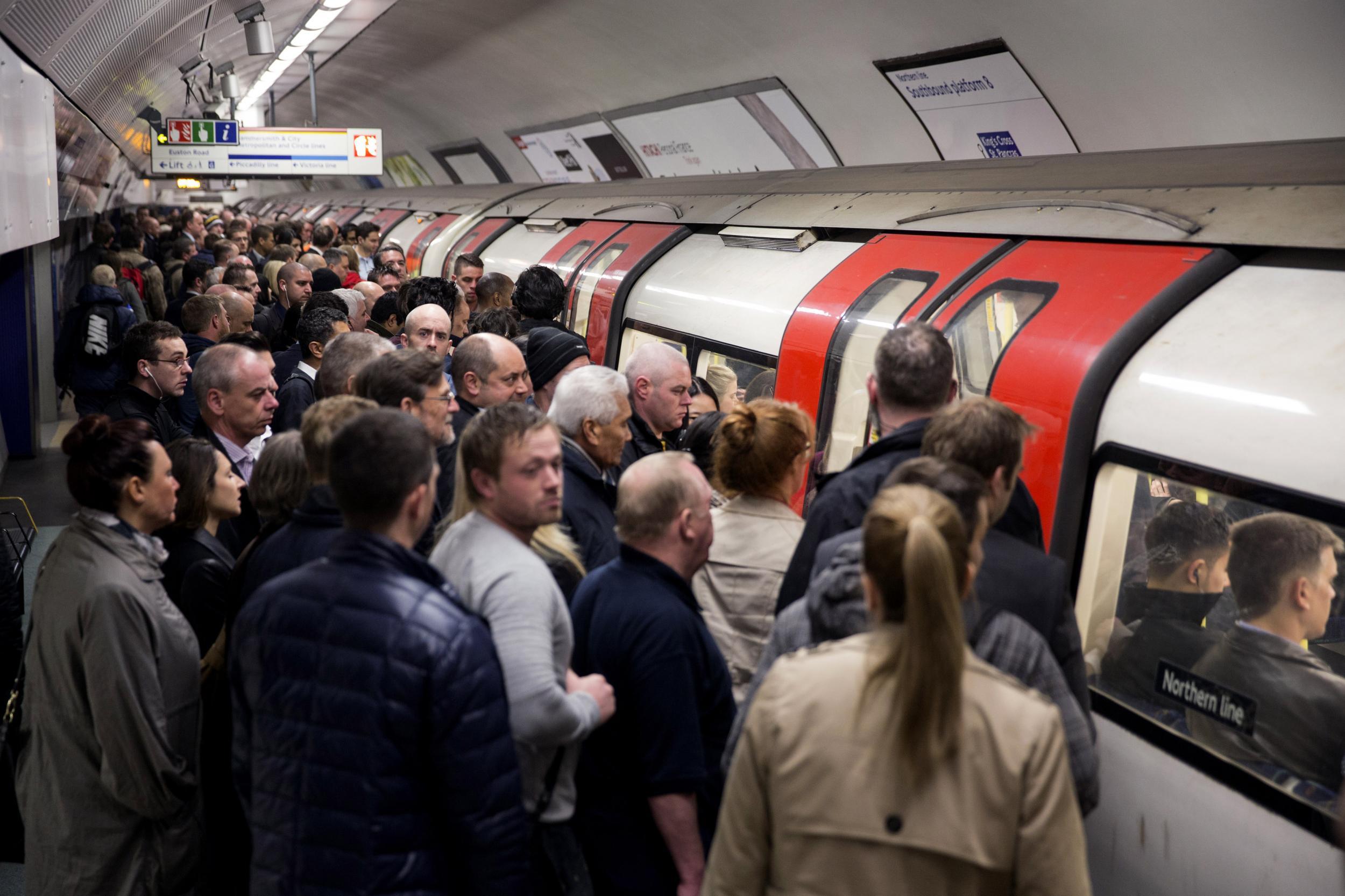The idea of women-only train carriages is gravely insulting to both women and men
To introduce segregation on public transport in response to sexual assault is to suggest that it is inevitable. It sends the message (deliberately or not) that men will always harass and abuse women and so the only solution is to constrain women’s freedom 'for their own safety'


Your support helps us to tell the story
From reproductive rights to climate change to Big Tech, The Independent is on the ground when the story is developing. Whether it's investigating the financials of Elon Musk's pro-Trump PAC or producing our latest documentary, 'The A Word', which shines a light on the American women fighting for reproductive rights, we know how important it is to parse out the facts from the messaging.
At such a critical moment in US history, we need reporters on the ground. Your donation allows us to keep sending journalists to speak to both sides of the story.
The Independent is trusted by Americans across the entire political spectrum. And unlike many other quality news outlets, we choose not to lock Americans out of our reporting and analysis with paywalls. We believe quality journalism should be available to everyone, paid for by those who can afford it.
Your support makes all the difference.When I was sexually assaulted on a bus in early 2012, I didn’t feel able to report what had happened. I didn’t know who to tell. I didn’t think anyone would listen. I didn’t realise that what had happened (a man groping my legs and moving his hand into my crotch) actually constituted sexual assault. And I certainly didn’t think I would be taken seriously.
Five years later, after a concerted campaign by the British Transport Police and Transport for London, things are finally slowly changing. Levels of sexual harassment and assault on public transport are still shockingly high, but officers and frontline staff have been specifically trained to support victims, and public awareness campaigns are starting to bust the myths that prevent people like me from coming forward.
Clearly, there is still a long way to go, but the campaign, which consulted closely with organisations including the End Violence Against Women Coalition, Hollaback! and The Everyday Sexism Project, has rightly focused on targeting perpetrators. Using extra plain clothes officers and weeks of action to increase arrests, it also aimed to boost victim confidence in reporting by taking the issue seriously, not curtailing women’s movement.
Now, the spectre of women-only train carriages, a suggestion that seems to be mooted about once every six months, has once again reared its head. Labour MP Chris Williamson has suggested a consultation on such carriages as a possible way to create a “safe space”, in response to recent figures showing a jump in the number of reported sexual offences on trains over the past five years.
While the suggestion is understandable and no doubt well-meaning, it risks taking us backwards just at the very moment we are starting to make progress.
The rise in reported sexual offences reveals that there is still a major problem to be tackled, but it does not necessarily mean that such offences have rapidly increased, as the time period in question corresponds to that during which specific work on this issue has been undertaken by transport police. What we are more likely seeing is an increase in victims feeling able to come forward and report what has happened, as police action and the Report it to Stop It awareness campaign are starting to increase public confidence. This would be a damaging moment to stop and revert to less progressive tactics.
To introduce segregation on public transport in response to sexual assault is to suggest that it is inevitable. It sends the message (deliberately or not) that men will always harass and abuse women and so the only solution is to constrain women’s freedom “for their own safety”.
Like warnings that women should alter their dress, behaviour or route, it suggests that there is action women can and should be taking to avoid being assaulted. This risks playing straight into victim-blaming beliefs that embolden perpetrators and prevent survivors from feeling able to report.
At root, women-only carriages put the onus on women to flee and hide rather than fixing the rampant sexual harassment and assault that afflicts our society.
It also presents particular problems: if a woman is assaulted while not sitting in a women-only carriage, how will she then be treated? Would she feel able to report? What about people who experience racist, Islamophobic, homophobic or transphobic abuse, sometimes in combination with misogyny? This too must be tackled by sending the message that it is unacceptable and should be stopped altogether, rather than by segregating potential victims.
To separate women on public transport is to send perpetrators the message that nobody is trying to prevent them from committing crimes. Instead it merely postpones their actions until the station, or the bus stop. It does nothing to tackle the wider problem of sexual harassment and assault, merely moving the problem around. In fact, it is also extremely insulting to the vast majority of men, who it implies are innate sexual predators with no control over their own actions.
The introduction of such carriages would also impact on all women’s journeys, inconveniencing many who might not experience such an attack. If we are willing to take such sweeping action, impacting on an entire sex, might it not make more sense to focus on those who are actually carrying out the vast majority of assaults?
Those who honestly think that segregated carriages are the answer ought to consider suggesting men-only carriages, until perpetrators can be trusted to control themselves. If this sounds like a ridiculous idea, we should ask ourselves why it is considered reasonable to suggest a solution that restricts women, while perpetrators are let off scot-free.
Join our commenting forum
Join thought-provoking conversations, follow other Independent readers and see their replies
Comments